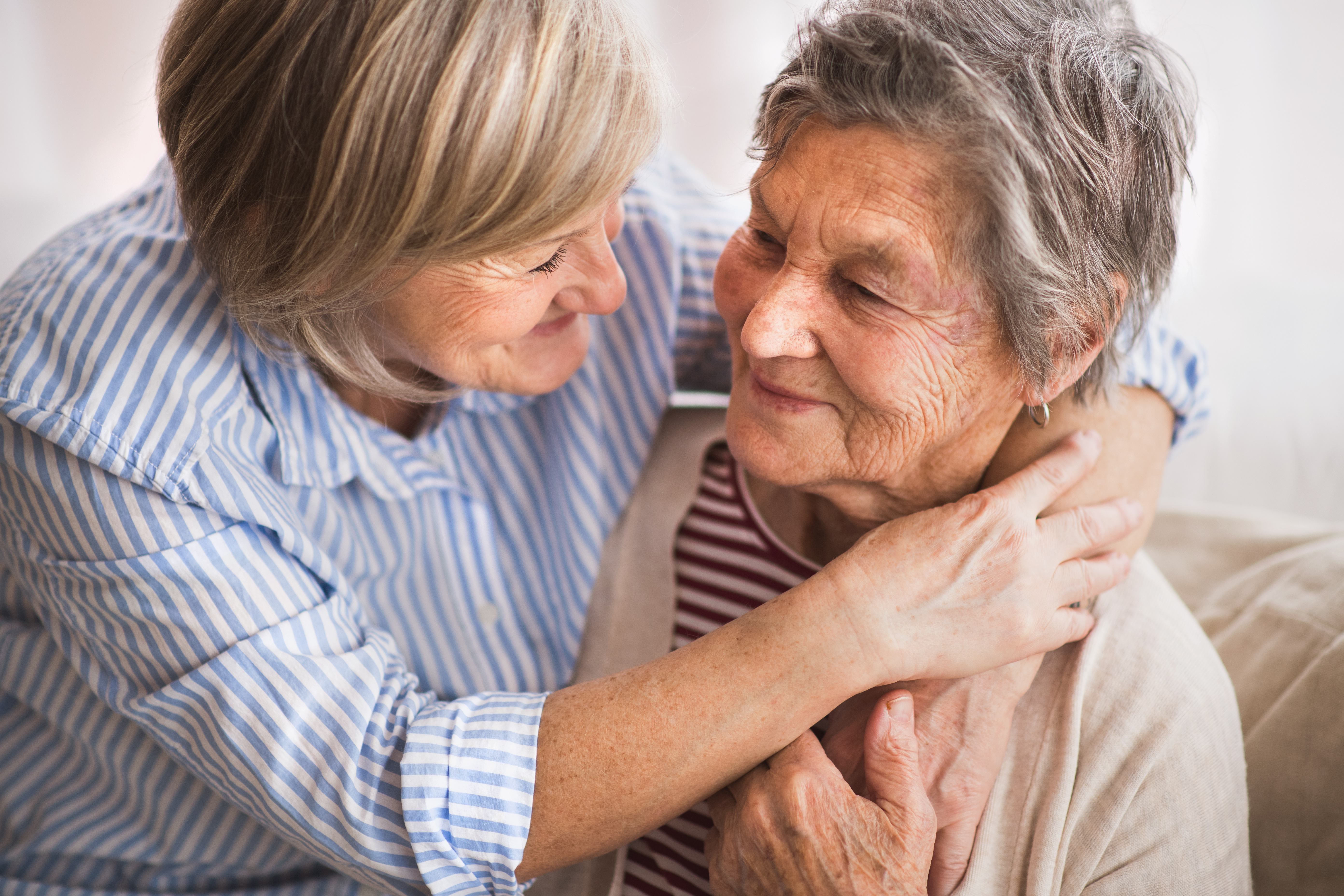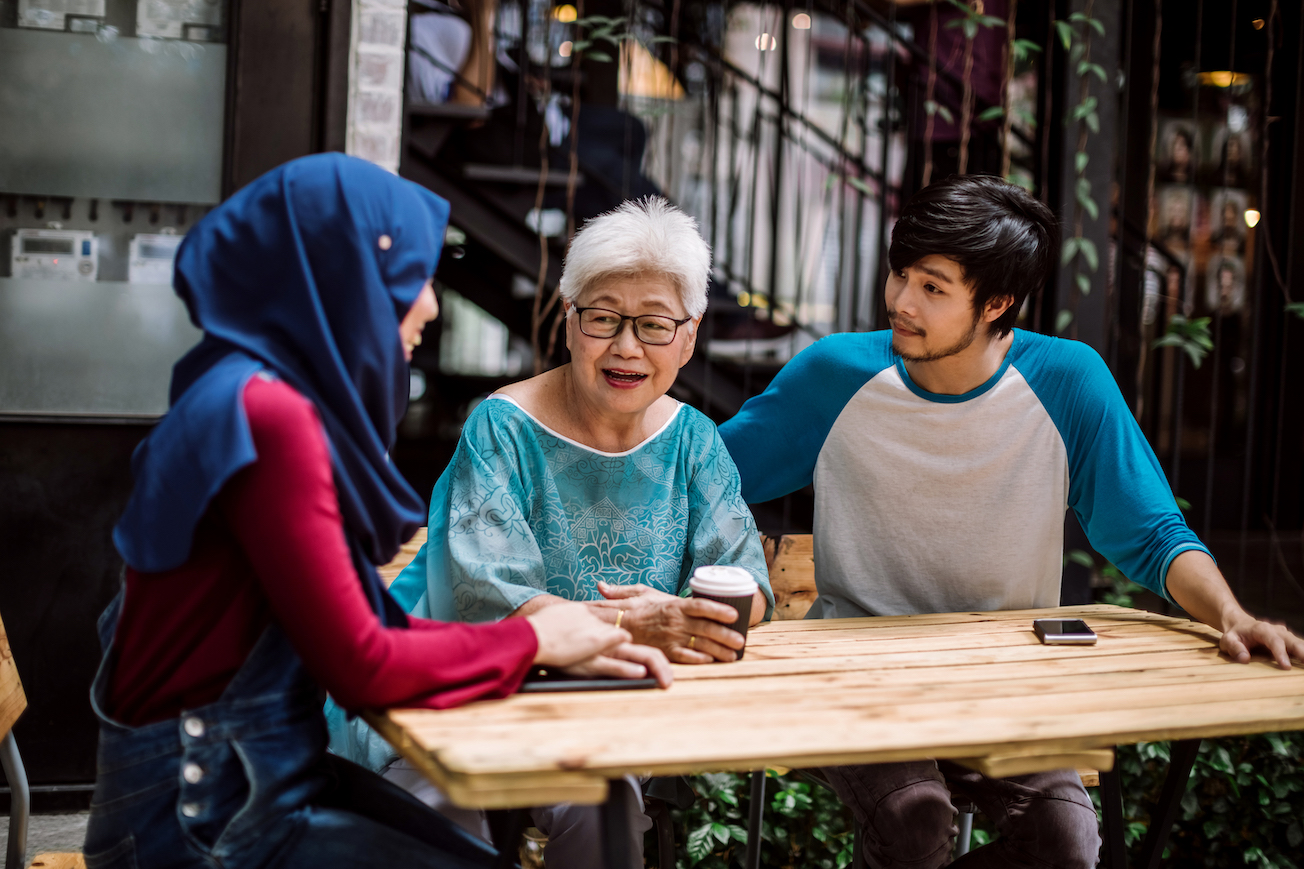The emotional effects of a stroke: how to help an older adult cope

Emotional changes, such as depression, anxiety, or mood swings, are common after a stroke. These changes can affect recovery, relationships, and day-to-day life, making it harder for your loved one (and you) to find a new sense of normal. Noticing these changes early and getting the right support (whether it’s therapy, medication, or simply connecting with others) can make a real difference. With a strong support system, you don’t have to face the ups and downs alone.
Supporting a loved one’s recovery from a stroke as a caregiver is a meaningful and rewarding experience. Whether you’re helping your loved one move around the house, eat their meals, or get dressed for the day, the personal touch of your care makes a huge difference.
But when you provide care, it can mean supporting not just their physical needs, but their emotional needs too.
Maybe your loved one seems quicker to anger. Or maybe they cry more easily than they used to—or not at all. These shifts can be confusing, not just for your loved one, but for you, too.
Some emotional changes are temporary, while others stick around a little longer. The good news? With the right support, strategies, and a little patience, you can navigate these emotional shifts together. We’ve got your back, and we’re here to help you understand what’s going on and how to manage it.
Common emotional effects of a stroke
If you’ve ever had to recover from an illness or injury, you know there can be good days and bad. When a person has a stroke, life can change in an instant and adjusting to those changes can be a lot to handle emotionally.
Sometimes these feelings or difficulties happen because your loved one’s brain is still healing. A person who has had a stroke may feel grief for what they lost after the event. For example, a loss of abilities — such as walking, talking, bathing, or living independently — can understandably cause feelings of intense grief.
A person who has experienced a stroke can experience: 1, 2, 3
Irritability and frustration
Sadness and depression
Anxiety and fear
Grief
Confusion or forgetfulness
Challenges in confidence and self-identity4
Tips for supporting your loved one
Navigating these effects and other emotional changes after a stroke can be hard — but there are ways to lighten the load. Try these methods to support yourself or the older adults in your life after a stroke:
Positive activities – Encourage older adults to express their emotions and concerns through healthy, mindful activities. Try journaling, drawing, affirmations, visualizations, or meditation.
Support groups – Other people who have experienced a stroke and their care circles can share in and validate the experience of stroke recovery. You may be able to find community support groups focused on stroke or illness recovery in your community.
Open communication – Engage in honest conversations about the stroke survivor’s concerns, needs, and emotions. Actively listen to what your loved one has to say and involve them in decision-making and problem-solving.5 Help them set realistic goals and celebrate their progress.
External assistance – Seek assistance from others outside the home or caregiving family network. Therapists can help our loved ones address their emotions and learn how to cope. A doctor can provide guidance on more severe mood swings, depression, or anxiety.
Your care, their recovery
What most of this boils down to is that you should be there for the person in any way you can — and seek help from others when you can’t. Know what to say to someone who has had a stroke so you can communicate effectively with your loved one.
Discover more tips on stroke caregiving
Get more tips on how to care for someone after a stroke with our guide.






